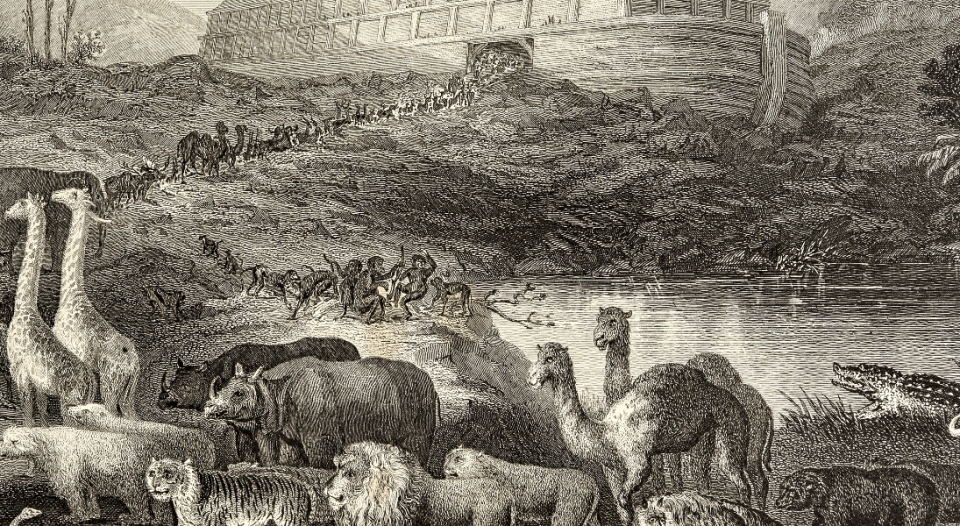As a little girl, I loved mermaids. I recall being crushed to discover that they didn’t exist in real life. I’d look at pictures of “The Little Mermaid,” Edvard Eriksen’s bronze statue based on the Hans Christian Andersen story, at Langelinie Pier in Copenhagen, feeling so sad that mermaids weren’t truly swimming in the ocean.
Then I learned about the haenyo, the sea divers of Jeju Island, South Korea. These women are trained to dive down and harvest conch, abalone, sea urchins and other creatures. They can stay in the water up to six hours at a time and hold their breath for up to three minutes (they carry no oxygen with them). Mermaids! How wonderful! So they do exist—just in a different way than I’d imagined.
We might easily read certain Bible stories and write them off as fiction, especially as we grow older and “wiser.” But I’ve come to believe that our real mission as people of faith is to find the greater truth of these tales.
We might easily read certain Bible stories and write them off as fiction. But our real mission as people of faith is to find the greater truth of these tales.
Every ancient culture had its own creation story, for example. The Navajo told of four seas and of four clouds that joined together to form the first man and woman. Hawaiian natives believed that a cavern (male) and a moonless night (female) united to give birth to the creatures in the sea. The aborigine creation story involves the Father of Spirits awakening the Sun Mother; in Japan, a shoot springing up from the muddy sea entered the sky and became a god.
Do these stories sound strange and unbelievable to modern ears? Of course. Any stranger than the six days of creation in Genesis? All these tales are different, yet they share common elements: a creative force and an original event that set everything in motion. I can appreciate the beauty and poetry of these mythical details without taking them literally—and still worship the glorious Force that created the universe in ways I still don’t understand.
God loves us
Many ancient civilizations had flood stories similar to the Genesis story of Noah’s ark, but that doesn’t take away from the core message: God loves us and will not let us be extinguished. God’s word, God’s promise of protection, can be trusted. So in a profound way that story is true.
The spectacular Exodus story of Moses parting the Red Sea is another for which modern information leads to a possible scientific explanation. Scientists in recent years have pointed to the “wind set-down effect,” when a strong wind blowing for many hours can cause the sea level to drop. If this occurred in Exodus, it might have exposed an underwater ridge, which the Israelites might have crossed as if it were dry land. But what is the real message here? Is it not that we are delivered, saved, by listening to and following God (in this case God’s messenger, Moses)?
Even the dramatic encounter between the little shepherd boy David and the giant Philistine Goliath may be misunderstood, says author Malcolm Gladwell. If it did actually occur, an over-armored hulk might easily have been bested by a nimble youth expertly using the slingshot and stones he used to protect his flock. Does this interpretation negate the moral of the story (with God on our side, we can defeat the forces of evil)? I think not.
Why not let go of a desire to force these old, old stories into a rigid mold they may never have been meant to fit?
Jesus turning water into wine and walking on the sea? Modern physicists hoping to prove or disprove the first story have written scholarly papers breaking down the chemical elements of both wine and H2O. Critics of the second posit that Jesus might have been treading on a thin sheet of ice. To me both miracles beautifully symbolize Jesus’ care for us, however they came to be.
The lived experiences of the writers of Scripture are far removed from ours in the scientifically advanced world of today. I would imagine that 2,000 years in the future, our efforts to understand the workings of the universe and the nature of God will seem quite primitive as well. I don’t believe for a second, though, that the deep truths at the heart of the Bible will be any less relevant millennia from now.
What Bible stories do you question? Which have strained credulity and even been stumbling blocks to belief? Why not let go of a desire to force these old, old stories into a rigid mold they may never have been meant to fit? We shouldn’t fear new information or let it shake our faith. Instead we can search for the treasured lessons within the Bible. Faith. Hope. Love. God’s amazing grace and endless mercy.
Maybe, like my mermaids, our new understanding may be quite different from what we’ve always imagined. But maybe it will be infinitely more meaningful.






